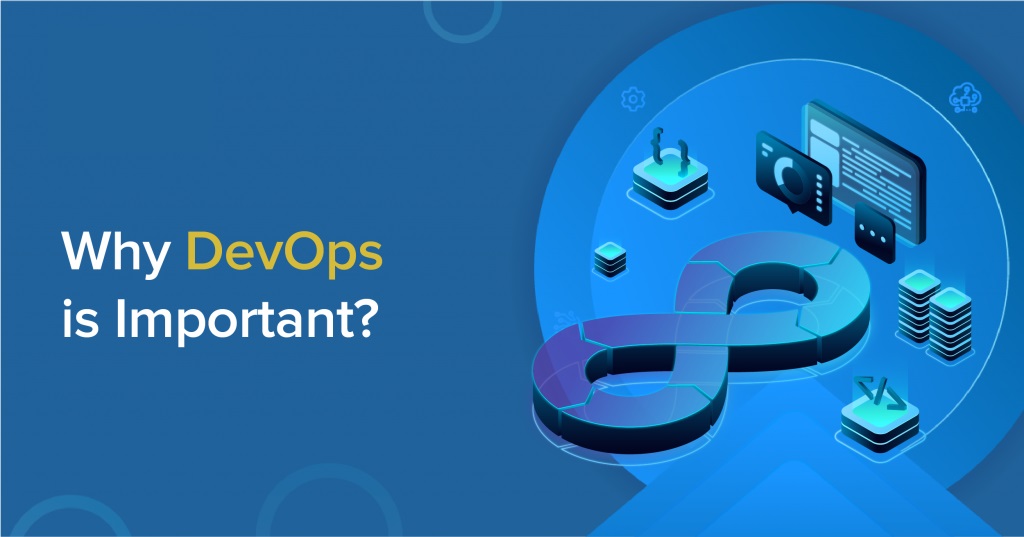Article Navigation

In today’s fast-paced digital landscape, organizations across industries face mounting pressure to innovate quickly while maintaining operational efficiency. DevOps managed services have emerged as a critical solution for businesses striving to reinforce agility, scalability, and resilience in their IT operations. These services streamline workflows, enable faster delivery of high-quality software, and foster collaboration between development and operations teams. As a result, they’re becoming a necessary a part of modern IT strategies.
The Growing Need for Agile Operations
The demand for agile and responsive IT operations has never been greater. Organizations are shifting aloof from traditional development models, which regularly end in siloed teams and lengthy delivery cycles. Instead, they’re embracing DevOps methodologies, which emphasize collaboration, automation, and iterative improvements. DevOps managed services provide the expertise and infrastructure needed to implement these methodologies effectively, ensuring that companies can adapt to evolving market demands while staying before the competition.
Core Capabilities of DevOps Providers
To deliver value, DevOps managed service providers (MSPs) offer a comprehensive range of capabilities designed to handle the challenges of contemporary software development and IT operations. These include:
1. Continuous Integration and Delivery (CI/CD)
Providers implement CI/CD pipelines to automate the method of building, testing, and deploying code. This ensures that updates are delivered rapidly and reliably, reducing time to promote and minimizing errors.
2. Infrastructure Provisioning and Configuration
MSPs handle the setup and management of scalable infrastructure using Infrastructure as Code (IaC). This approach enables rapid provisioning, consistent environments, and reduced manual effort.
3. Security and Compliance Management
Security is integrated into every stage of the event lifecycle. Managed services ensure compliance with industry regulations and best practices, safeguarding systems against vulnerabilities.
4. Monitoring and Observability
Comprehensive monitoring tools provide real-time insights into system performance, enabling proactive issue resolution. Observability ensures that teams can trace and debug complex systems effectively.
5. Collaboration and Communication
Managed services foster seamless collaboration by implementing communication tools and shared platforms. This promotes transparency, accountability, and efficient teamwork across all stakeholders.
Key DevOps Managed Services
DevOps managed services offer specialized solutions designed to address specific operational challenges and goals. Each service is tailored to deliver measurable results and enhance the efficiency of development and operations teams.
DevOps Consulting
Consultants focus on evaluating existing workflows and pinpointing inefficiencies. For example, they might analyze deployment processes, identify delays, and recommend automation tools to accelerate delivery. Beyond problem-solving, consultants develop detailed DevOps roadmaps, ensuring every step aligns with the organization’s strategic objectives and technical capabilities.
Managed Cloud Infrastructure
Service providers take on the responsibility of managing cloud environments, ensuring seamless scalability and uninterrupted reliability. They handle tasks such as optimizing resource usage, migrating workloads to the cloud, and securing sensitive data. For instance, a provider may design an auto-scaling architecture that supports sudden traffic surges without compromising performance. Additionally, they monitor system health and resolve potential issues before they affect users.
ALM and DevSecOps
Application Lifecycle Management (ALM) covers every phase of the software lifecycle, from initial concept to ongoing maintenance. This service ensures that all development and operational processes are interconnected, creating a cohesive system. DevSecOps services, on the other hand, embeds security protocols directly into DevOps workflows. For example, continuous vulnerability scanning and compliance checks are integrated into CI/CD pipelines, guaranteeing that security measures are maintained without slowing down development.
Why DevOps Managed Services?
The reliance on DevOps managed services stems from their ability to address specific challenges with precision and measurable outcomes. These services streamline processes, improve reliability, and enable teams to focus on core business goals.
Accelerated Transformation
Managed service providers bring expertise that accelerates digital transformation initiatives. For example, they implement CI/CD pipelines that reduce deployment times from days to hours, enabling organizations to respond quickly to market demands.
Flexibility and Cost Savings
Scalable solutions allow companies to adapt to fluctuations in demand without overcommitting resources. For instance, a cloud infrastructure managed by a provider might include pay-as-you-go pricing, eliminating unnecessary costs during low-usage periods while ensuring scalability during high-traffic events.
Improved Quality and Compliance
Automation tools implemented by managed services ensure that quality control is consistent across all deployments. For example, automated testing catches bugs early in the development process, reducing the likelihood of production issues. Providers also ensure compliance with industry regulations, such as GDPR or HIPAA, by incorporating auditing and reporting mechanisms into workflows.
Innovation Focus
With routine operational tasks handled by service providers, in-house teams can redirect their efforts toward innovation. For instance, developers might concentrate on designing new features or exploring emerging technologies, while the managed service provider ensures the stability and security of existing systems.
Evaluating Managed Service Providers
Selecting the right DevOps managed service provider requires a careful assessment of their capabilities and track record. Each factor plays a crucial role in determining whether the provider can meet specific organizational needs.
Technical Capabilities
A provider’s expertise in modern tools and practices is essential. For example, experience with containerization platforms like Kubernetes or automation tools like Ansible ensures smooth implementation of DevOps strategies.
Industry Knowledge
Providers with sector-specific knowledge bring added value by understanding unique challenges. For instance, a provider experienced in the healthcare industry would be familiar with stringent data security requirements and compliance regulations.
Delivery Models
Flexibility in delivery models, such as on-site support for critical systems or remote management for routine tasks, ensures that the provider aligns with operational needs. A hybrid model might be particularly beneficial for organizations transitioning to cloud-based operations.
Partnerships
Strong partnerships with technology vendors, such as AWS, Microsoft Azure, or Google Cloud, indicate access to the latest innovations and robust support networks. These affiliations can be critical when integrating complex systems or optimizing cloud infrastructure.
Proven Methodologies
Adherence to established methodologies, such as Agile or ITIL, demonstrates a structured approach to service delivery. For example, a provider that uses Agile practices can deliver iterative improvements aligned with changing requirements.
Continuous Improvement
A commitment to ongoing enhancement ensures that services evolve alongside technological advancements. Providers that prioritize continuous learning and innovation are better equipped to address future challenges, such as integrating AI-driven automation tools or adopting edge computing.
By partnering with a DevOps managed service provider, organizations can achieve greater operational efficiency, reduce time-to-market, and ensure the reliability and security of their systems. This partnership not only addresses current challenges but also prepares businesses for future growth and technological advancements.
Conclusion
DevOps managed services are transforming the way businesses approach software development and IT operations. By offering advanced capabilities, strategic guidance, and scalable solutions, these services empower organizations to stay competitive in an ever-changing digital landscape. Whether you’re looking to accelerate innovation, improve operational efficiency, or enhance security, partnering with a trusted DevOps managed service provider is a step toward sustainable success. As the demand for agile operations grows, adopting these services is no longer optional—it’s essential.
Support Ukraine against russian fascists! Defend Europe from horde! Glory to Ukraine! 🇺🇦

Head and Editor in Chief of EcmaScript2017 Journal. Senior JS Back-end Full stack developer and software architect.



Read Also
M4uHD: Unveiling the Entertainment or Venturing into Uncertainty?
Smart Square HMH: Access, Features, Pros, Cons
UrleBird: Unveiling its Functionality, Benefits, and Potential Concerns